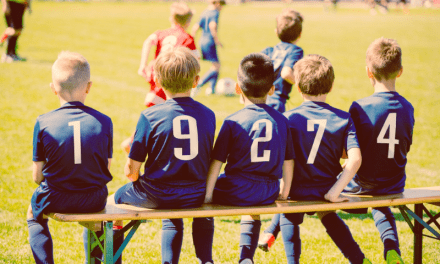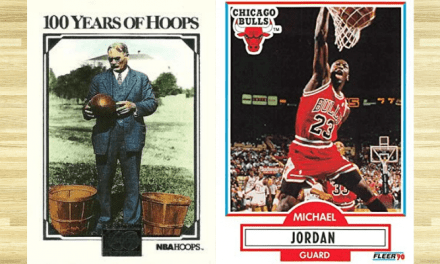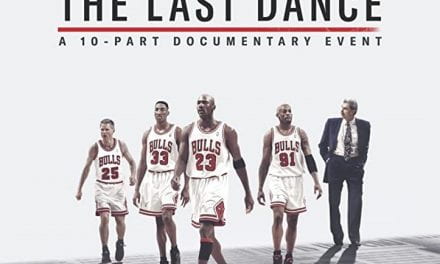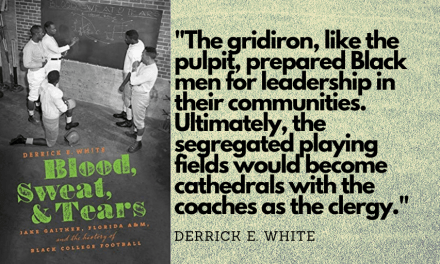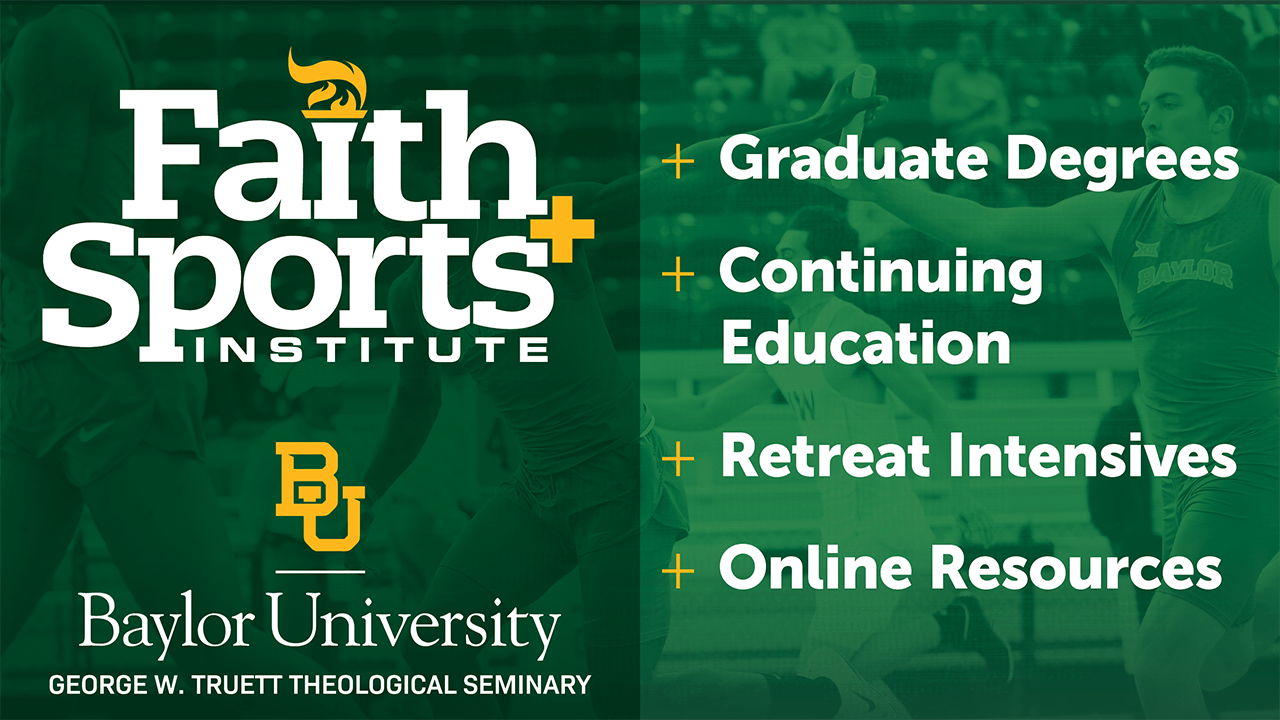In 2017 I was a Ph.D. history student working on a dissertation about the blending of sports and Christianity. As part of my research, I interviewed a few key figures connected with the early years of the Fellowship of Christian Athletes. One of those figures was Cindy Smith. In 1976, Cindy was hired by FCA to lead and direct their brand new sports ministry program for women. This was just a few years after Title IX, as opportunities for women in high school and college sports began to increase. While Cindy was not the first woman involved with the FCA, she was, as far as I have been able to tell, the first woman hired to do full-time sports ministry work.
Recently I reached out to Cindy to ask her if I could post portions of our 2017 interview here on the blog. I thought that all of us who are involved with or interested in sports ministry could learn from and appreciate her story. She graciously agreed. The interview posted below has been edited for length and readability (primarily by removing filler words). I would like to thank my sister, Sara Frank, for providing the transcription.
October 10, 2017
Paul: Let’s start with your background growing up. How did you get interested in sports?
Cindy: Well, I went to high school in the 60s. I graduated in 1967, and at that time, it was pre-Title IX, and so there were no sports opportunities for me to compete in high school. My father was athletic and of course my mother didn’t have sports growing up either. She was coordinated. But as a kid growing up, I lived in a neighborhood with guys that were older. We always played football and baseball and catch, and biked and did all those things that so many of the girls probably were not doing. And you know, you couldn’t get me inside when it got dark because I was still out playing with the guys.
And then, in the town I grew up—Liberty, a small town, just north of Kansas City. At the time there were only about 8,000 people and now there’s probably 20,000. In terms of just opportunities to do sports, we had a softball team that was fairly competitive—Liberty Softball Team. We travelled around—you know, Nebraska, Iowa—and played different tournaments throughout the Kansas City region. We also had a little country club, if you will. It was just a swimming pool and a clubhouse, but from 7th grade through my senior year of high school I was on a swim team.
When I was in high school, probably less than half of the kids in my class even went to college. And a lot of the women in my class that went to college, they became teachers. You didn’t see a lot of them that branched into law and medicine and accounting and things like that. So, I went to the University of Missouri and got a teaching degree. My first year of college I went to what’s now Missouri State (it was Southwest Missouri State). And when I was there, they had women’s college sports teams and so I ended up playing on the volleyball team and then I played on the basketball team. And at that time, the basketball team was six-on-six and there was a center court line and you had only one person who could cross over. That was the rover that played forward and guard. [laughs] Go figure.
What position did you play?
I was a terrible shooter, so I was a guard.
Before you get to Missouri, you mentioned the softball league that you played in. Tell me more about that.
Well it wasn’t really a league. In the different small towns like Smithville, Kearney, you know, it was like saying, ‘Play now.’
So like a town ball type of thing?
That’s right. Exactly.
Were there any women athletes that, growing up, you were even aware of? Any athletic heroes that you read about or saw?
No, not at all. I would read Sports Illustrated and learn about women who got to swim in the Olympics, or track and field athletes, or some of the Olympians that medaled in the Olympics. But beyond that there just wasn’t. The woman who coached our softball team, who was older, she was the one who kind of started the team; and she played in—at the time it was a professional softball league—and so I thought she was pretty cool.
What about your religious background? Did you grow up in a family that went to church every Sunday?
Yes, I grew up in a Baptist church and so I went to Sunday school and church almost every Sunday. Not a lot of it sank in, but I went because my friends did. And between Sunday School and church, we would walk up the three blocks to the square and go to the soda shop or the drug store and get to have a Coke or something, and then go back to church. And so that was kind of my faith life for the most part. You know, I certainly understood Jesus Christ and a personal relationship with him and I was baptized, probably at 12 or 13. But I really came to faith, and really understood what a true personal relationship with Jesus meant, through Young Life. There was a Young Life group in my high school. And so Young Life became very, very important to me; and my high school English teacher was our Young Life leader.
Young Life—they had some similarities with FCA, so it’s interesting that that group brought you to greater maturity in your faith.
Absolutely. And I continued that through college. We had groups on campus that were former “Young Lifers” and we in turn started Young Life clubs in area high schools.
You’re in Young Life in college, you’re playing basketball, you’re playing volleyball…
And when I did play volleyball and basketball at Southwest Missouri State, it was— again, we had teams in uniforms, but I think we had T-shirts with numbers on them, and you bought your own shorts. I mean we weren’t outfitted in university uniforms. That just didn’t happen. And when we traveled, I think we even rode in some of the players’ cars. We didn’t have mass transportation that took us to games. We didn’t have overnight trips and hotels and things like that. I don’t even think we were in a conference. I think we played Southwest Baptist and just schools that were within a three-, four-, five-hour drive.
This is late 60’s, early 70’s right?
This was my first year in college—’68-’69. And then I transferred, after my freshman year, to the University of Missouri. And I finished up there, the last three years of school.
And you get into teaching, physical education?
Yes, that was my major.
How did you decide to go that route?
Well, quite candidly, I didn’t know I had a lot of options when I went into teaching. I didn’t care for math, I didn’t care for history. It’s kind of like, ‘Well, I like sports, so I guess I’ll just become a Phys Ed teacher.’ [laughs]
So you’re at Missouri State, then you’re at Missouri, getting into Physical Education. You’re involved in Young Life. Throughout it you’ve got the religious emphasis, the sports emphasis, and then after you graduate, where do you end up next?
I moved. I came back to the Kansas City area and at that time, in 1971, I really didn’t care. I knew I wanted to teach high school. I didn’t care where I went. I think I just sent out mass applications. And towards the end of summer, around the first part of August, I, by God’s grace, had an opportunity to interview with Shawnee Mission South High School. I think part of the allure was that they were really needing someone to coach the volleyball team. Because now the girls had sports in high school—you know, four, five years later, after I was out of high school—and a lot of the coaches who coached the women’s teams were guys. So they really wanted a woman.
In talking to this very nice athletic director at the time, I think I just sold him on, ‘Whatever you need me to coach, I can do it.’ [laughs] I think I got the teaching position because of my sports, so to speak. What now would be quite minimal in terms of participation.
When you get to Shawnee Mission South, this is right before Title IX is passed. When that passed, were you aware? Sometimes I think when we look back, we sort of assume that things changed immediately. But it took time to implement. Were you aware, right away, how much Title IX could possibly change and expand opportunities?
No clue. No clue. I just knew that the kids in high school that were five years younger than I was, they had all kinds of opportunities to do volleyball and track and swimming and basketball. And it was kind of like, ‘Wow. This is pretty cool.’ And so that was just the stepping-stone for, obviously, college and having more opportunities for women and more travel budget and more small scholarships.
Around this time, too, somehow you get connected with FCA. Was that pretty quick when you got to Shawnee?
Yes, it was. When at Shawnee Mission South, there was an existing Young Life Club, and so I was involved in that. And then the boys had an FCA Huddle and one of the girls who was in high school—Shawnee Mission South—was Lew Ellen Erickson. And her father was the president of FCA [note: earlier this year, John Erickson passed away]. And so that’s the connection. Because as more and more girls who were competing in sports wanted to be a part of the Huddle, they sought me out to help lead the girls’ Huddle.
So when you’re starting a Huddle at Shawnee, you’re starting a girls’ Huddle?
Yes, at Shawnee Mission South. Because the girls were wanting to be a part of the guys Huddle and some of the guys were thinking, ‘Well, you know, I think maybe we need to segregate this.’ And they would come together for a joint meeting, but maybe it makes sense that we have girls on one side of the room and boys on the other so we can talk about things that might be more pertinent.
Was Shawnee one of the first to have a girls’ FCA Huddle? I know there could sometimes be a decentralized approach with FCA, where if you wanted to start a local group for girls and women, someone could do that; they just didn’t necessarily have support at the National level.
Absolutely. Right. And I think with Lew Ellen Erickson being in that Huddle and being an athlete, her dad, who was head of the FCA—you know, headquartered in Kansas City—he continued to mull around women and sports and if FCA needed to somehow provide opportunities for the girls that are in high school. And how best to do that. And then fast-forward to 1976, when they decided they wanted to hire a woman as the first women’s director to help men out in the field and to incorporate and begin bringing women into their Huddles.
They hire you for that, in 1976.
Yes.
What was that conversation like? And your decision: was it difficult?
There’s a memory loss there. [laughs] I knew in my heart that after five years of teaching high school I was ready to move on, and in the meantime I had worked on my masters in guidance counseling. So I finished my masters program and was thinking maybe counseling was another avenue I wanted to pursue, because I’m still working with kids in some regard but I’m out of the classroom, or off the playing field, so to speak.
I’m going to say that it happened around Christmas ’75 or Spring ’76 that I started having some conversations with one of the people instrumental in FCA, a guy named John Shore. He was the guy who led the Huddle group at South, and he had a big tire company and was doing pretty well financially and he was quite close to Mr. Erickson and the headquarters. And I think he had a lot of influence in that and trying to encourage them to start looking beyond just the guys. I don’t know how many interviews I had or who all I ended up talking to, but I’m going to say sometime in April, early May, I was offered an opportunity to go to work in the National Headquarters office.
I had no clue what it was going to look like. I’d always played ball on the boys playing field, so I think in some ways I knew how to relate to the guys. And I think maybe that was just a part of it, having been athletic and knowing how to carry on conversations and talk “guy” talk.
Now when you get started, there’s no model you can look at, right? So how do you go about figuring out what to do?
Well, I was kind of a go-to service person who helped guys, whether it was in Tulsa or Dallas or Colorado or whatever; to answer questions and to be available to go to their state, their city, their Huddle groups and just talk to them about how to incorporate the girls, how to start a Huddle group, how to get a woman coach to lead these groups.
I think the light bulb kind of went off with a lot of them in that maybe the best way to do this is just to send and to scholarship some of our women coaches to an FCA coaches conference. So some of these coaches conferences started to invite and allow women. And I think that helped trigger the opportunities for girls Huddle groups to get started too. And a lot of times it was the football coaches’ wives. It wasn’t always a woman who was a coach at the high school. It was a lot of times spouses or just women in the community that wanted to be a part of it.
Did you find quite a bit of enthusiasm? Sort of like there’s an untapped market for what FCA was doing with women?
Well, yes, I did. But I think there was a lot of resistance too. It was like when the women came into the NCAA. I mean, fortunately or unfortunately, I was one of the first three women hired at the NCAA to start incorporating that transition. And so there was no doubt that a lot of the men—it was easy the way it was for them. And things were going well and it was a greased machine and now you want these women to come in and it’s going to be a little bit more challenging. Now you’ve got to find somebody to lead the women and so some of the men thought: ‘It’s more than I bargained for. I’m out here raising money for my own staff and my own position anyway, so you’re asking me to do more with less resources.’ So there was resistance, definitely.
Was some of it theological?
Oh, absolutely.
Do you remember any specific cases of someone quoting Bible verses? Or what were the cases against women being in FCA, that you recall?
Oh, yes. The women are subservient. That women need to be silent in the church. Women denied leadership roles.
How common do you think that was?
I think it was very common. Because it was hard for—and God love the men who struggled with it; it was just like—they didn’t have a playbook to follow. And so, for them it’s just like, ‘Woah, I don’t know about this. This just feels a little weird to me that we’re going to do this.’
How did you deal with that? I imagine you’re probably looked at like, ‘Hey, if there’s any question that has to do with women, let’s go to Cindy.’ How do you handle that?
I think a lot of it was just realizing that putting on boxing gloves wasn’t going to get us anywhere in trying to create programming for the girls and women. And I had a lot of support from all the people in the office. I was the first women’s director, but there were already women working in the FCA in administrative positions that would be more clerical or secretarial as opposed to leadership. And a lot of the guys had offices in their region, and they worked with women, so I don’t think they were anti-women. But it was just a real adjustment for some of them, with their upbringing and where they come from, to be able to get there, you know?
I think of the famous Billy Graham rule where he says that he’ll never be alone with a woman that’s not his wife. But for you, it’s hard to do your job if you can’t meet with men. Did you face that at times?
You know, I don’t recall that. If it was that, it was unsaid. I do remember that there were some trips that I would take where I knew, going into that area, it was going to be a lot more warm and fuzzy than other trips. And sometimes I think that the men on staff knew they had to do due diligence to have me come and talk to them a little bit about women’s programming. But it was a lot easier to hook me up with his wife or a teacher or this or that, and not have to deal with me directly.
And I think, too, I would say that in different FCA pockets, some were certainly more conservative than others. And some were more liberal. Some would say you need to quit having altar calls and other people didn’t feel that way. I remember one specific incident where I was somewhere in Oklahoma, and I just went on a visit, or a weekend, and had a message. And I was talking, and this woman came up to me afterwards and just rang me a new one because I didn’t give a “raise of hands” opportunity for people to come to Jesus.
So geographically there were theological differences?
Yes, definitely. The Southwest was the Bible Belt; definitely. And then if you went to Colorado and you went back to the East Coast, often a lot more liberal, so to speak.
Where did you fit in to that spectrum? Would you say you were conservative, liberal, somewhere in between?
I was in the middle to the right liberal.
I know the FCA men had a coaches’ breakfast with the NCAA, and it was just accepted right away. But with the AIAW [the main college athletics association for women at the time] there seemed to be a little bit of suspicion about a religious organization. Did you sense some resistance as you tried to get the FCA connected with groups like the AIAW?
Yes, I would say so. Because I think the men had “x” number of years to make it shine for them. And they had the Grant Teaffs and the Tom Landrys and the Tom Osbornes of the world who could speak to it. And on the women’s side, first of all, there were some renowned coaches back then, but not the way that there is now. And so it was kind of like a gold nugget if you could find some women administrator or woman head coach—someone like Pat Summit—to say, ‘Yes, women coaches, you need to go to this. It’s good for you, it’s good programming and they’re not out to try to convert you.’
Tell me about the growth in women’s ministry. Do they expand the women’s ministry while you were still there? Or is it just you by the time you decide to leave?
It’s just me at the national office. But, again, we started seeing women getting hired as staff members in other parts of the country. And one of the women who came along, probably not too long after me, was a woman. She was hired at the regional level to do developmental work. And so she did a lot of traveling throughout New England and the Eastern Seaboard, doing fundraising as a development person.
And women’s ministry brought new questions, too. For the men it was understood that this is for athletes, that’s what the ministry was founded for. And as women came in, questions came up. ‘Well, are flag team people athletes? Are cheerleaders athletes?’ And so this was an ongoing question, nationally, among the staff. Who do you incorporate into the FCA? And can anyone come? And then is that what we’re about? Just a Sunday school group? Or are we really just for athletes? Because athletes have specific things going on in his or her life that are unique to them that we need to address. And a lot of times people wanted to come to FCA because all the “cool kids” went to FCA. You know, the athletes and the jocks and what have you. And a lot of them [the male athletes] just wanted their girlfriends to be able to come along. And is that okay? So I think there were a lot of growing pains with it.
Where did you come down on some of those questions? Were you saying ‘Let’s have the cheerleaders and flag girls come in too?’
I think I loosened up as time went on. I think initially I thought, ‘You know, we’ve got to make it special for the women, too.’ Special meaning: we’ve got to make it just like the guys. So it’s got to be women in sports. And cheerleaders, while they can do a lot of stuff—and some of them might be gymnasts and that’s okay but, you know, the pom pom and the flag girls—they’re not athletes, and they shouldn’t be a part of FCA. And I think that was kind of the initial stance, but as time went on you changed, attitudes changed. And you realized ‘Well, they have needs too, and there’s a ministry that we need to provide for them as well.’
How long were you there at FCA? Sounds like early ‘80s you’re moving on to the NCAA?
I left in ’81.
By the time you changed jobs in 1981, do you recall thinking of specific things that changed for women in sports ministry during your five years?
I’m going to say initially there was maybe just one or two camps for girls. We never had co-ed summer camps; they were separate. We had separate women speakers and separate Huddle Group leaders and what have you. So back when I was doing it, maybe it started out just having one or two camps. And maybe when I was through, by then it had grown into four or five camp opportunities for females.
Those camps are such an important part of what FCA does.
Absolutely. And you know that was before what you have now. I mean you’ve got every college campus in America who has camps. You have AAU and famous players who now are retired athletes that have their own camps. But camps were a novelty back in the ‘70s. And now, anytime you turn around, whether it’s just the city parks or the local high school or it’s the college or it’s the NFL retired players or whatever it is—everybody’s got camps. So now it’s like, ‘how does FCA make their camps unique?’ And I’m not sure how they do that.
Now, when you go to the NCAA, did you make that transition through FCA contacts as you’re working with FCA and working in Kansas City?
It was dumb luck. And a great time in my career, and I’ll always be grateful for it. Their headquarters at the time was here in Kansas City, and they [the NCAA] had just decided that it was in their best interest (and within their membership, all the different colleges and universities that belonged to the NCAA) to go ahead and now take in the women who before they woudn’t take in. The women had created their own structure under the AIAW, and so, as the NCAA determined that this was the direction that the membership wanted to go, it was not an easy road, because of the resistance both from the men and the women.
The NCAA knew that championships were the first place to start with the different sports, and so they hired a woman named Ruth Berkey, who was at Occidental out in California at the time, to be that woman. And in turn, she hired two of us. And I was one of the two, fortunately, to begin the implementation of women’s programming coming into the NCAA for women’s championships and creating those championships in basketball and field hockey and volleyball and golf and softball, etc.
To play a pioneering role there, too, is pretty remarkable. I mean, you’re really the first woman for a major sports ministry organization, and then you’re part of the NCAA transition, too.
Yes, it turned out to be a pretty good opportunity. I’m very grateful and I always say: ‘God blessed somebody with not a lot of talent to just get to do that.’ [laughs]
[Laughs] When you’re with the NCAA, obviously you can’t do the blending of sports and Christianity in the way you were doing it with FCA. But was that still part of your life as you’re working with the NCAA?
Well, I’m trying to help FCA at the championships. They had a breakfast at the National Volleyball Championship and at the Basketball NCAA Championship, and so I’d try to be supportive of that, and to be encouraging of that. We couldn’t put it in any kind of programming or memos or anything like that, but just to help them maneuver hotel space and dining space and ‘here’s where you should have it’ and ‘here’s the best time to have it with the championship and practices’ and stuff like that.
Just to wrap up, what path did your career take after you joined the NCAA?
I stayed with the NCAA until I decided I needed to move out of the area totally, because I always lived in the Kansas City area, except when I lived in Columbia [Missouri]. So I moved to California, to the East Bay outside of San Francisco. And I had relatives out there and I went through a job search and I thought, ‘Well, gosh, who wouldn’t want to hire me, because I’ve worked for the NCAA?’ [laughs] And most people, they had no clue what the NCAA was. It was, you know, this fast-paced area in the East Bay and Silicon Valley is just down the road.
Long and short is that this one guy at World Savings and Loan gets a hold of my resume; and his son is playing baseball for Miami and then he interviews me and I go to work as a mortgage broker.
So it’s a totally different career.
Totally. Go into business—worked as a mortgage broker then for 10 years in California.
And then you end up back in Kansas City, eventually?
Yes. My father passed. And you know I was single at the time. And then I came back here, and ended up going back to work for the NCAA for three years until they moved to Indianapolis, at which point I ended my career working for the Kansas City Sports Commission.
That’s a fascinating career.
Well, it’s been fun. It really has been.
One last question. Where do you—feel free to not answer this at all if you don’t want to; just curious—where do you see yourself if you were to place yourself on the religious spectrum today?
That’s a great question. You know, I am very faith-based; have a wonderful heart for Jesus. I go to a church called The Church of the Resurrection. It’s a Methodist Church in Overland Park and it’s probably the largest Methodist church in the country that does a lot of community outreach. I’m very involved with ministries in the community, and helping people who are trying to reestablish themselves, and so we have a huge warehouse full of furniture where we serve people who are getting back on their feet who have been homeless or abused; veterans, things like that. And so I’m involved in that, and love, love my church, love worship. And so I would say that I have a—hopefully God would say I have a heart for Him.


